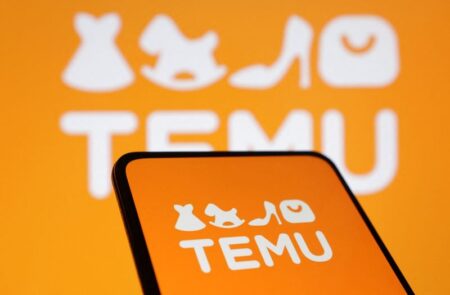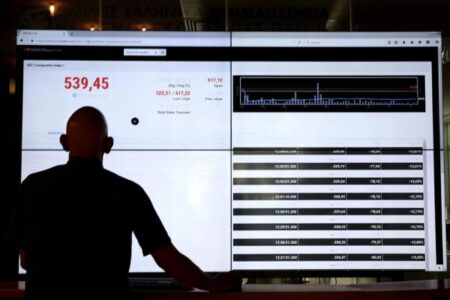WASHINGTON (Reuters) – Nippon Steel defended its $14.9 billion bid for U.S. Steel , arguing it would strengthen the U.S. Steel industry and that politics are motivating the U.S. opposition to the deal, according to a strongly worded letter first reported by Reuters.
Here is a summary of some of the key arguments Nippon Steel makes to rebut the national security risks that were outlined by the Committee on Foreign Investment in the United States (CFIUS), as first reported by Reuters.
CFIUS on Japan as ally
In its letter to the companies, CFIUS describes Japan as “a critical ally of the United States”, adding that the committee “considered the importance of our alliance to both countries’ national security.”
Response by Nippon Steel and U.S. Steel
In their response, the steel companies describe the statement as “essentially paid lip service.” The committee “does not seriously engage with that fact or explain how it impacts their analysis of the risks,” the companies said, adding that CFIUS doesn’t take into account a U.S.-Japan agreement which “explicitly recognizes that Japanese steel does not present risk to the U.S. market.”
The companies also assert that CFIUS has “never blocked an acquisition by a Japanese company before.”
CFIUS on India
CFIUS implies that Nippon Steel might decide to move U.S. production to India, by citing its presence and reported expansion there and relatively lower production costs.
“India is one of the largest production markets for Nippon Steel outside of China,” CFIUS said, citing public reports suggesting Nippon Steel plans to double its production capacity in India by 2030.
“A review of the overall cost of steel production in facilities in the United States and India shows that costs in the United States are significantly higher than that in India,” it added.
Response by Nippon Steel and U.S. Steel
The companies counter that Nippon Steel’s expansion into India will not threaten its in-roads into the U.S. “India is a growth market for Nippon Steel, but that growth will not come at the expense of Nippon Steel’s commitment to the U.S. market,” they said.
“Simply put, Nippon Steel intends to invest in the United States and grow U.S. Steel to serve the U.S. market; Nippon Steel is investing in India to develop India-produced steel to serve the Indian market, consistent with India’s similar focus on the development of its domestic steel industry,” they said.
CFIUS on Tariffs
CFIUS alleged that Nippon Steel makes “limited use of trade remedies,” or measures aimed at imposing tariffs on foreign rivals, and has at times opposed efforts to erect protective U.S. tariffs on steel imports. The committee said this indicates that its potential takeover of U.S. Steel might imperil its future bids for tariff relief, despite the American company’s history of aggressively seeking tariffs.
“While U.S. Steel frequently petitions for (trade) relief, Nippon Steel features prominently as a foreign respondent resisting trade relief for the U.S. domestic steel industry,” CFIUS said.
Response by Nippon Steel and U.S. Steel
“It is simply not true that Nippon Steel has made ‘limited use of trade remedies,'” the companies counter, emphasizing that Nippon Steel has participated in both of the two active trade measure proceedings in Japan.
Nippon Steel has also recently called for the Japanese government to follow the U.S. lead and impose an anti-dumping tariff on Chinese steel exports to protect Japanese domestic industry, the steel firms argue.
But to shore up any doubts, Nippon Steel proposes in the letter to maintain an internal “trade committee” to ensure that decisions to pursue trade cases are made without interference by Nippon Steel.
Read the full article here















